EarthBox® Project Improves Food Security in Tanzania
Through its Reaching Children’s Potential (RCP) Program, Global Volunteers works towards the eradication of hunger in Tanzania. Food security is a multi-faceted issue that must be addressed on multiple levels in order to combat hunger. In Tanzania, several projects aim to increase the level of food security of RCP families. One of those is providing EarthBoxes to families so they can grow their own vegetables at home with this innovative technology. Read on to learn about how food insecurity affects Tanzanian families and improvements in nutrition through the EarthBox Project.
The United Nations’ Committee on World Food Security defines food security as having physical, social, and economic access to sufficient, safe, and nutritious food that meets people’s food preferences and dietary needs for an active and healthy life. The United Nations reports that Sub-Saharan Africa remains the region with the highest prevalence of hunger, and has set ending hunger, achieving food security and improved nutrition, and promoting sustainable agriculture as the second of its 17 Sustainable Development Goals (SDGs) for the year 2030. Global Volunteers works in special consultative status with the UN and towards these SDGs.
Food Security in the Ukwega Ward
Food insecurity in the Ukwega Ward in Tanzania, home to Global Volunteers’ RCP Program, is a grave issue. Our research shows that nearly 40 percent of children in the villages where we work are stunted, which is directly linked to food insecurity. Many families have access to starches — such as millet, sorghum, cornmeal, plantains, and cassava. Tanzanians commonly eat ugali, a stiff dough made of cassava flour, cornmeal (maize), and either millet or sorghum. Ugali is usually served with a sauce made with meat, beans, fish, or cooked vegetables. Many families in the RCP program report that they consume very little meat. RCP mother Doris Chabruma describes her family’s diet: “We always have ugali, beans, vegetables, rice, cooked plantains, sweet potatoes, and cassava for lunch and dinner. We eat meat very few times, depending on the availability and if I have enough money to buy when it is available. We get vegetables and fruits every day like avocados, oranges, and bananas.”
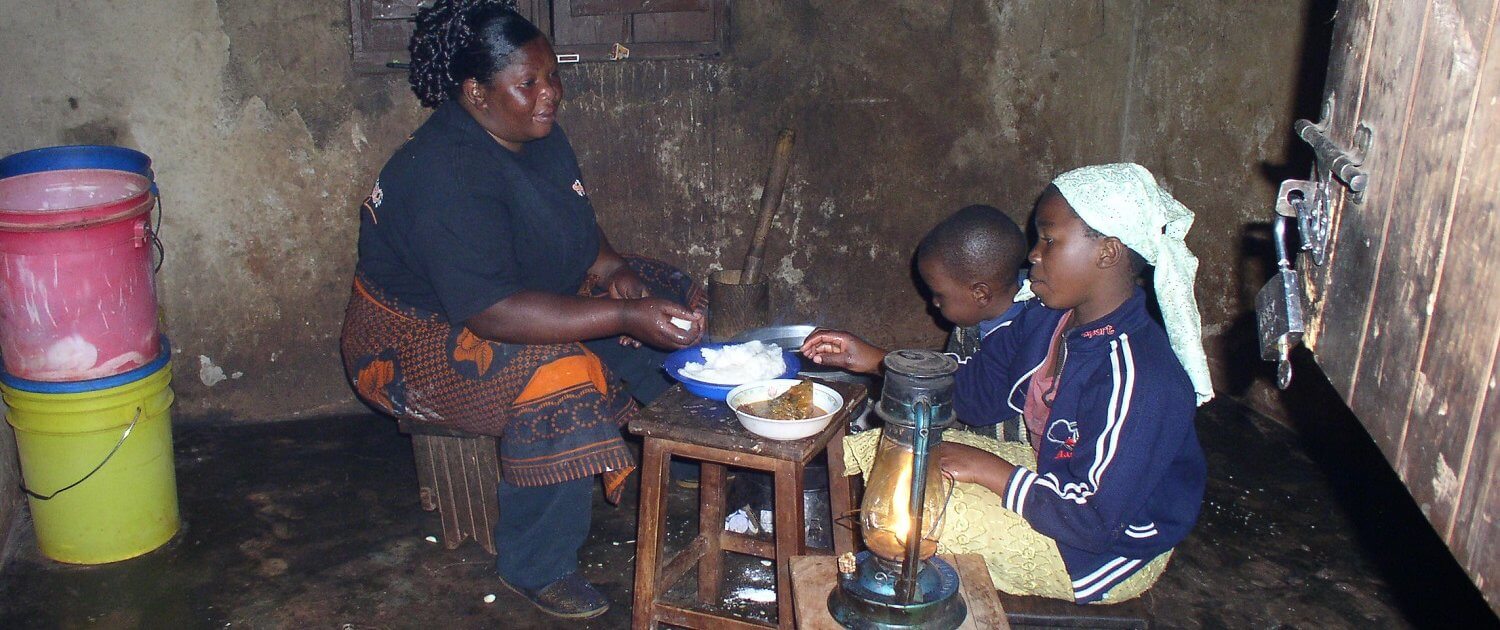
“We always have ugali, beans, vegetables, rice, cooked plantains, sweet potatoes, and cassava for lunch and dinner. We eat meat very few times depending on the availability and if I have enough money to buy when it is available. We get vegetables and fruits every day like avocados, oranges, and bananas.”
– Doris Chabruma, RCP mother
Ugali will keep a belly full for hours, but may not provide protein or many micro-nutrients. Global Volunteers’ RCP Program seeks to eradicate hunger – and by extension, stunting – in the Ukwega Ward. An essential step to doing that is to help families achieve food security. In order to see true, sustainable change, families must grow their own food. One cornerstone is the EarthBox Project, providing families with nutrient-rich vegetables. Two other major projects are providing packaged meals through our partner Rise Against Hunger, and helping RCP families raise chickens in coops for egg and meat that add dietary protein and fat that aids digestion.
“In order to see true, sustainable change, families must grow their own food.”
The EarthBox Project
Global Volunteers has been working with EarthBox since 2012 to provide high-yield, efficient container gardens to families and students. EarthBox® is a patented system that utilizes several different components to produce significantly better results than traditional in-ground gardens. EarthBoxes are excellent for growing vegetables in small areas as they can be set on tables. Pregnant women or women carrying babies on their backs, therefore, do not face the difficulty of bending over to tend to an in-ground garden. EarthBoxes are very easy to maintain in that they do not become infected with any soil-borne diseases or weeds. Additionally, they yield fast results.
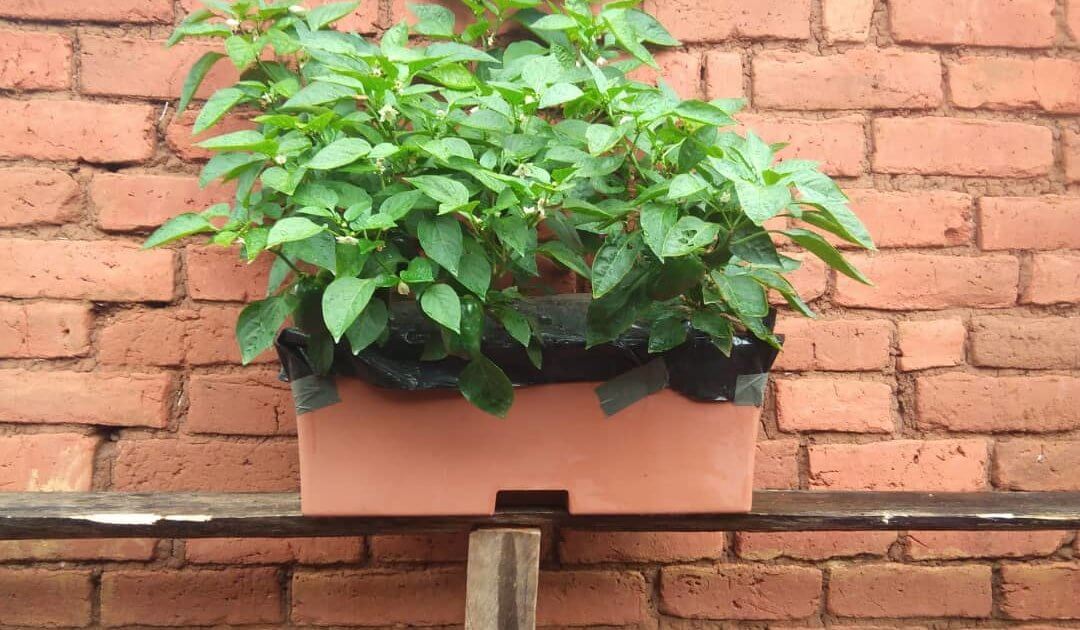
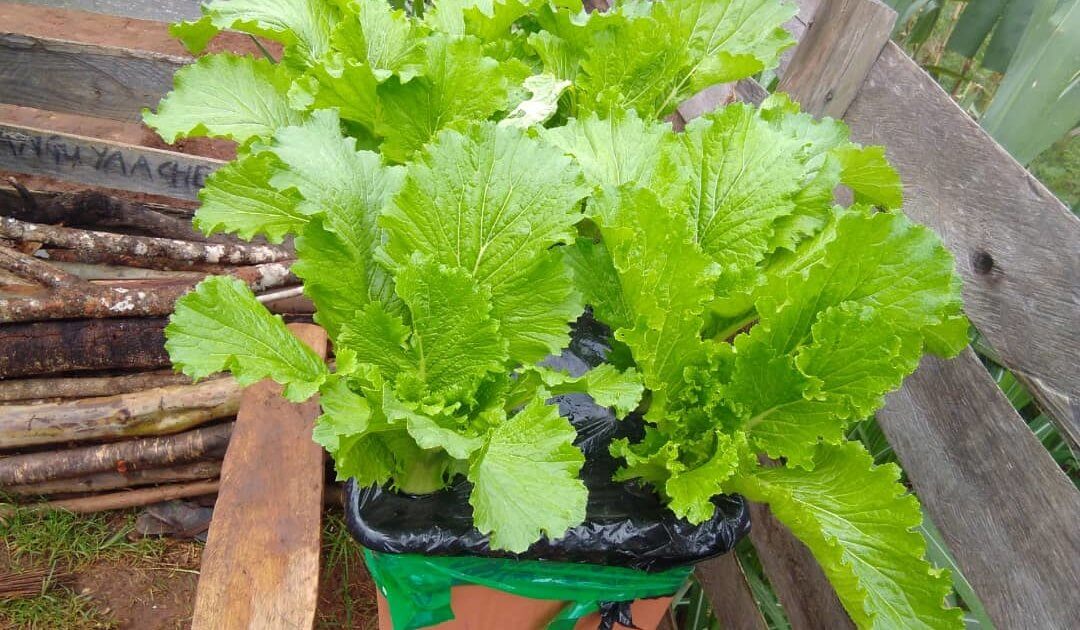
EarthBoxes provide nutrient-rich foods. 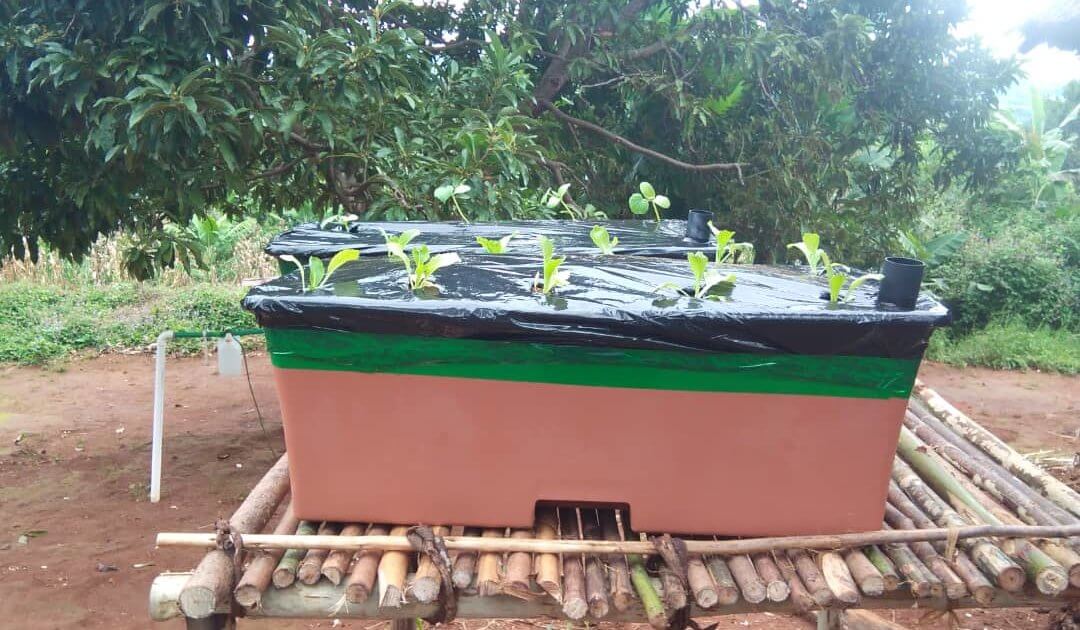
EarthBoxes are set on tables and are easy to tend to.
Through Global Volunteers’ Reaching Children’s Potential Program, mothers with a child or children under the age of two receive five EarthBoxes and pregnant women receive four. Seedlings are grown in the greenhouse in Ipalamwa and later transferred to the boxes. Peat moss is used as the growing medium for seedlings and coco peat, which we purchase in Tanga, Tanzania, for the growing medium in the boxes. Dolomite is also purchased locally. In Tanzania, we grow tomatoes, cucumbers, lettuce, green peppers, spinach, and Chinese cabbage.
With the help of donations received so far in 2020, 470 EarthBoxes were planted from May to July for RCP families. In September and October we plan to distribute 335 EarthBoxes to RCP families in Mkalanga and Lulindi. That is a total of 805 EarthBoxes planted and distributed from May to October.
With the help of donations received so far in 2020, 470 EarthBoxes have been planted and distributed to RCP families.
Testimonies from RCP Mothers
Sifa Kifyasi, an RCP mother of three, says, “I am growing spinach. I hope garden boxes will be very helpful because we will not be going out to get vegetables. In that matter I will be getting vegetables every day and throughout the year since they are very important in our bodies as we have learned. I appreciate the help that this program has given to our children.”
Yunisi Chusi, an RCP mother of six, explains what she has learned about nutrition in RCP workshops, “I grow garden green peppers in the container garden and now they are in the stage of being harvested. So I usually add green pepper almost in every food that I cook and the food becomes tasteful with good smell. I did not harvest all of them at once, I only harvest it when I need to use it. Vegetables are very important to our health because they help our bodies to fight against diseases. Truly, before the workshops we were just eating the food so that our stomachs could be full but not to help the body. That is why we were just eating the food sometimes without vegetables or fruits and we thought it was ok, but it was not. So now we know the importance of eating vegetables.”
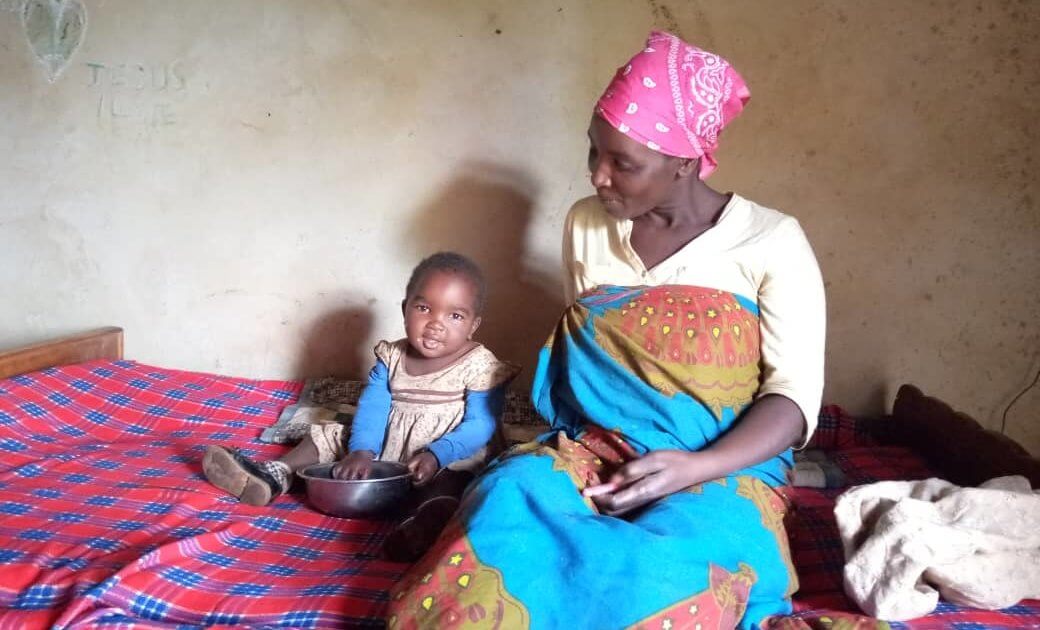
“Truly, before workshops we were just eating the food so that our stomachs can be full but not to help the body. That is why we were just eating the food sometimes without vegetables or fruits and we thought it was ok but it was not. So now we know the importance of eating vegetables.”
– Yunisi Chusi, RCP mother
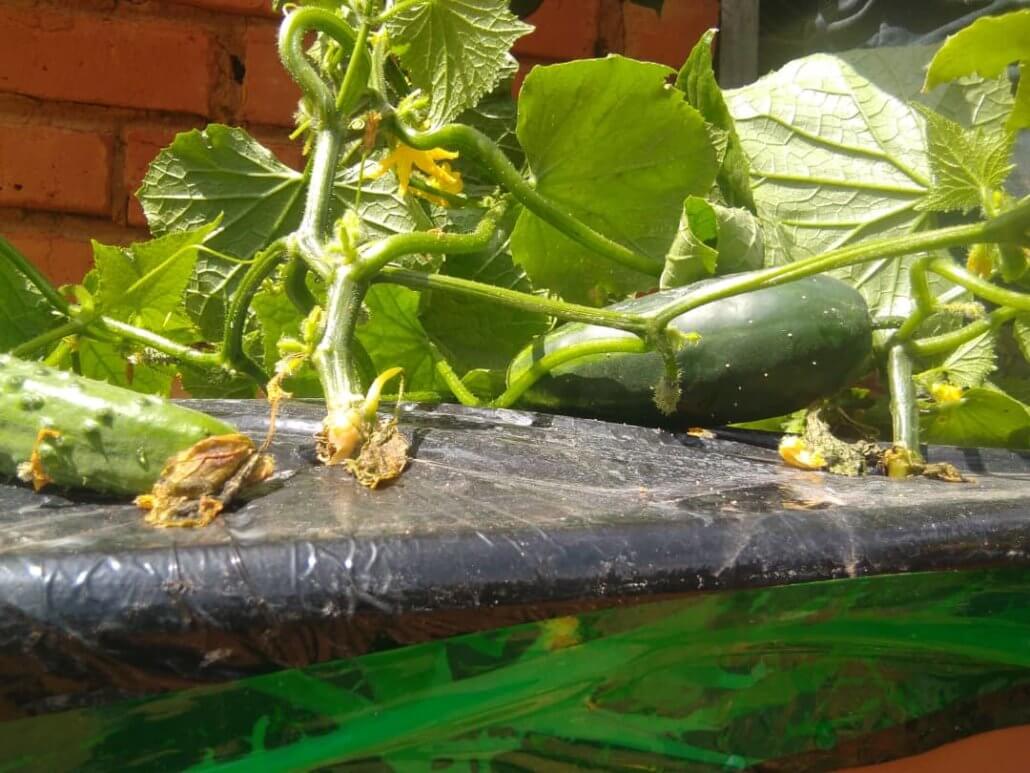
These cucumbers are almost ready to be harvested. 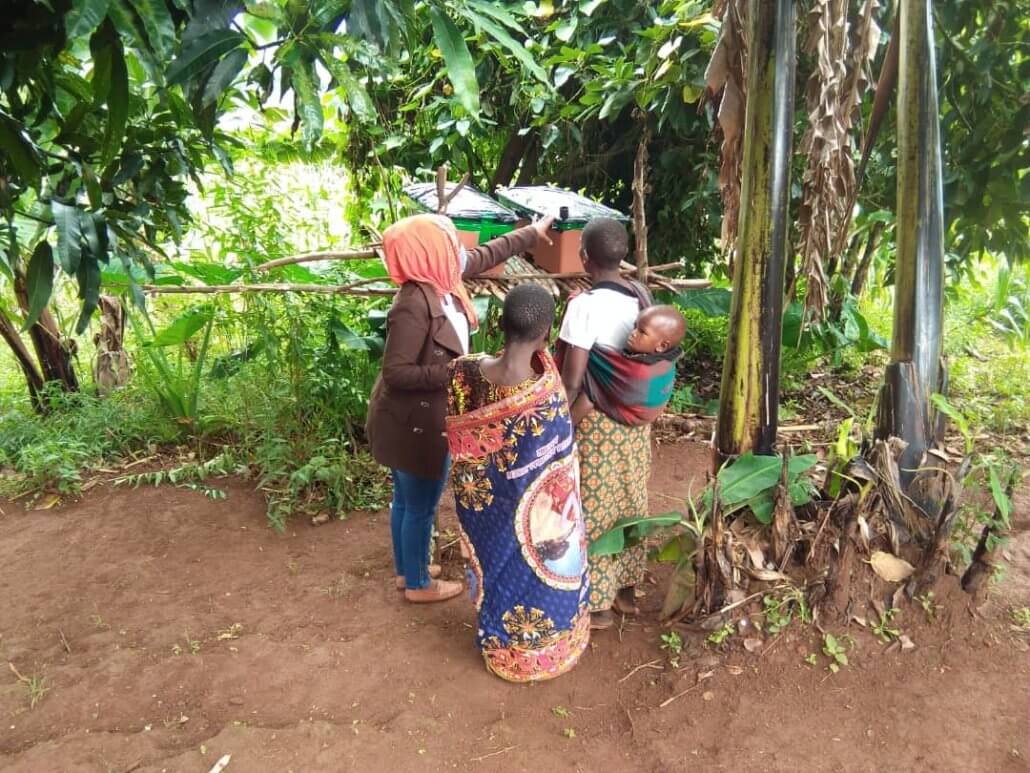
Mothers of young children don’t need to bend over to tend to an EarthBox.
How You Can Help Improve Food Security for RCP Families
Global Volunteers’ partnership with EarthBox is a central piece of the overall Reaching Children’s Potential strategy to increase food security and eventually end childhood stunting in partner villages in Tanzania. Here’s how you can be a part of this important project to end hunger once we are able to have volunteer teams on the ground in Tanzania again:
- Teach workshops on proper mother and child nutrition.
- Help train RCP families how to plant, care for, and harvest EarthBoxes.
- Help RCP staff maintain seedings until they’re ready to transplant into household gardens.
But today, before that time comes, you can provide an EarthBox, including growing medium, seedlings, and two replantings, to a Tanzanian family for $58. Each RCP family requires four EarthBoxes per year to supply micronutrients for children’s and mothers’ diets.
Read more on Global Volunteers’ work and partnership with EarthBox:

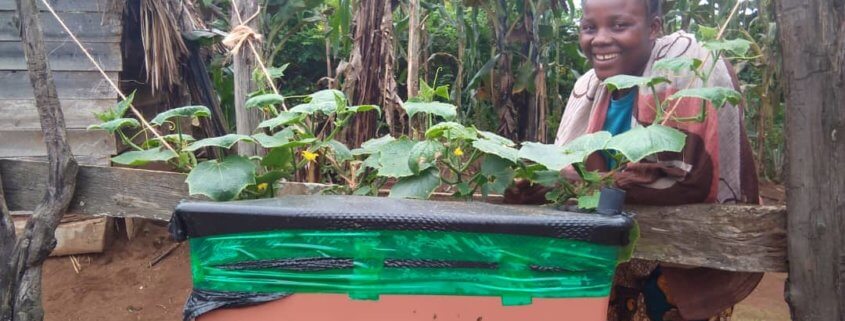
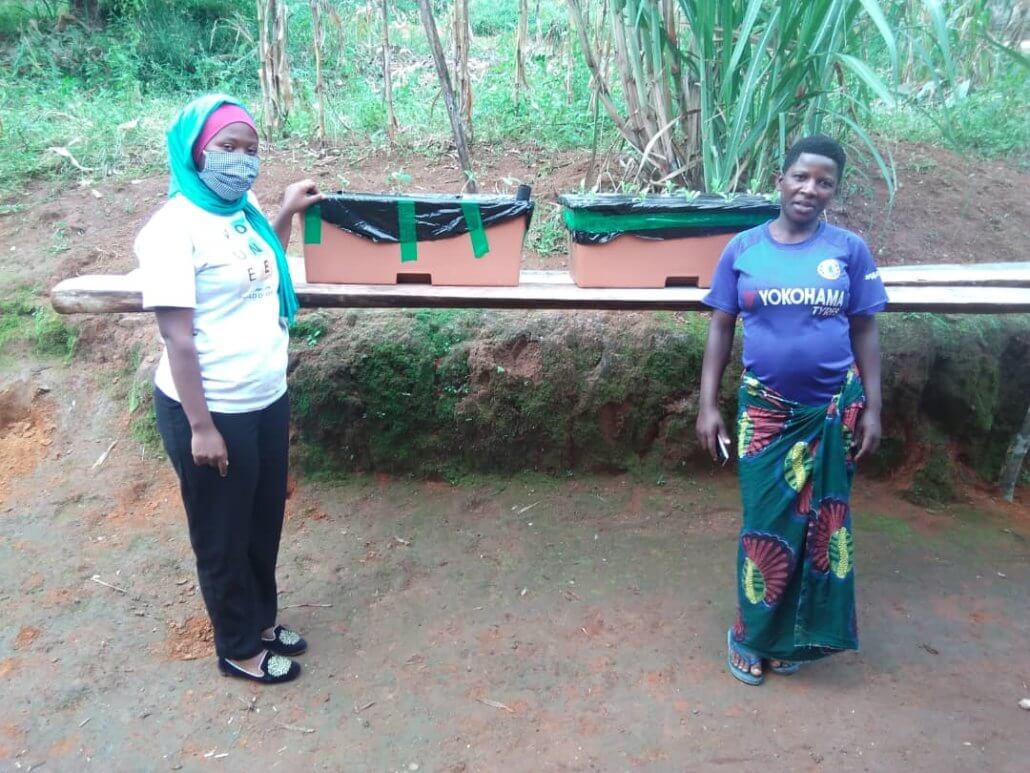

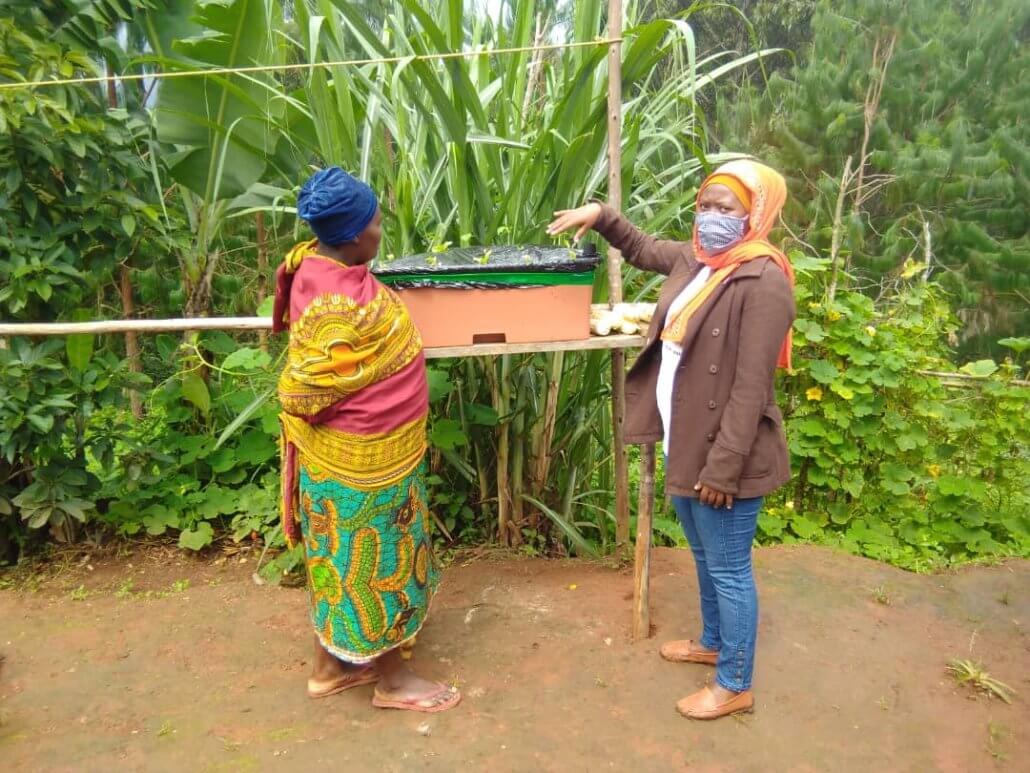
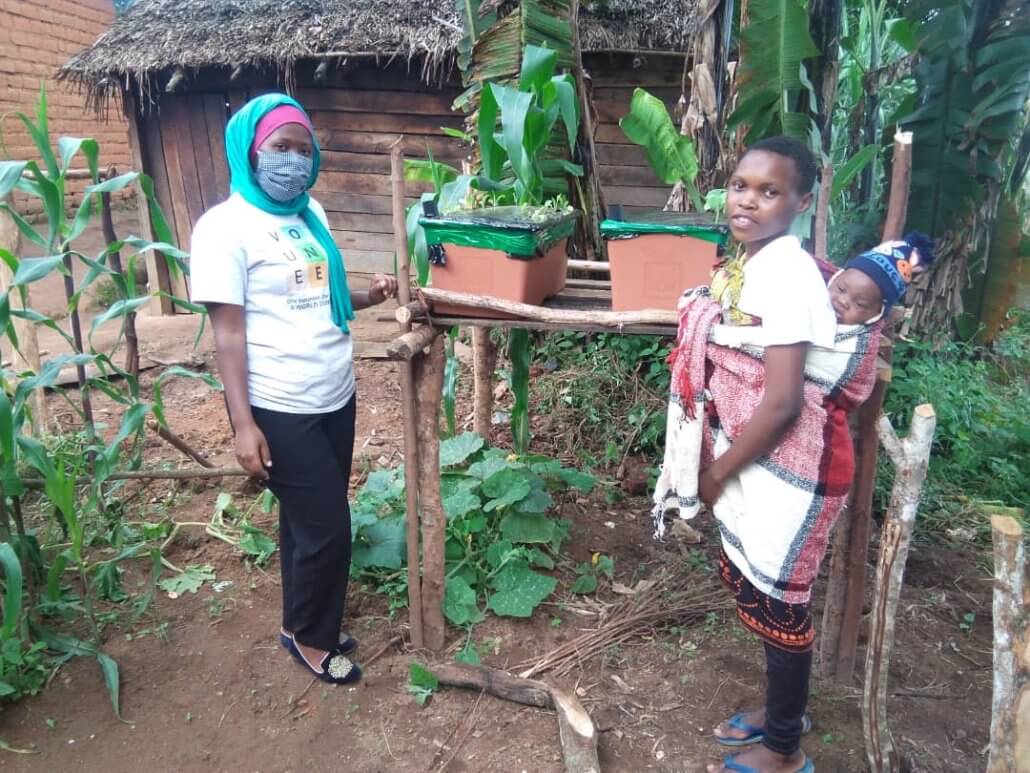


Leave a Reply
Want to join the discussion?Feel free to contribute!